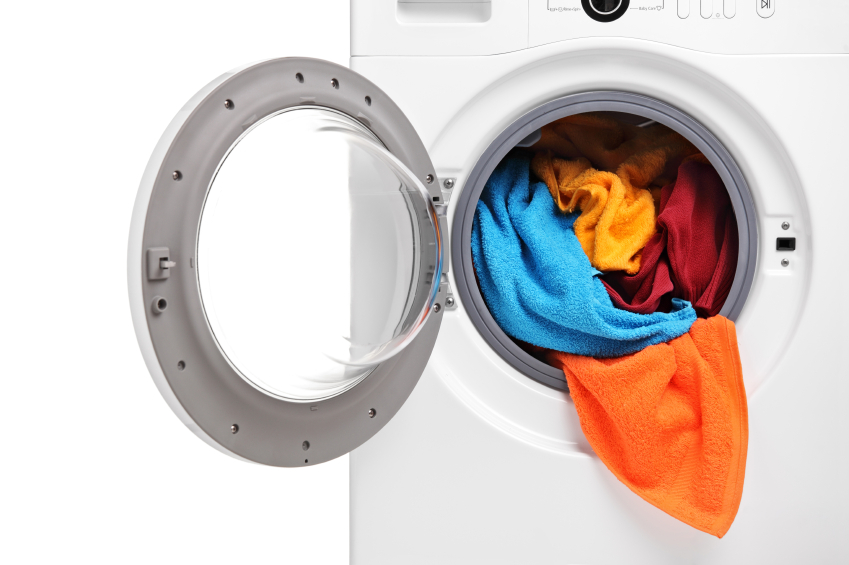The good folks at the International Journal of Professional Holistic Aromatherapy (IJPHA) shared some interesting information that came out of England regarding essential oils and laundry. While the information is dated 2012, considering the current surge in general essential oil use and, particularly, essential oil use in natural, homemade laundry detergents, boosters, fresheners, and dryer sheets, I think it’s important to share the information they provided here to keep everyone safe…
I have no personal experience with fire in my laundry, but I am also washing everything that comes in contact with essential oils, including all linens from my blending and massage studios, on a special “sanitize” setting at considerably higher temperatures than most people. In the event you are using essential oils or carrier oils, especially directly in your laundry at cooler wash temperatures, this caution is worth noting.
Towel Fires Lead to Safety Warning
Wiltshire Fire & Rescue Service in Great Britain issued a warning about the risk of fire breaking out in towels and linen that have absorbed essential oils.
A number of recent incidents in launderettes, salons and homes have been traced back to the same issue.
Group Manager Julian Parsons, from the Technical Fire Safety department, explained: “We’ve seen fires in tumble dryers, linen baskets and airing cupboards where towels that have had oil on them have caught alight. The problem only seems to arise when the wash cycle has been at a cool heat. It is now common to have washes at lower temperatures – sometimes as low as 15°C (59°F). When the wash has been at 40°C (104°F) or above, the oil residue is more likely to be safely broken down by the wash-ing detergents.”
He added: “At lower temperatures, the oil isn’t removed from the fabric. When the material is then heated in the tumble dryer, the residue can self-combust either in the dryer or when the linen is stacked.”
A beauty therapy room at Swindon College was badly damaged in April after a blaze broke out in a pile of towels, and fire investigators have now identified at least half a dozen other incidents that appear to have been caused in the same way.
Group Manager Parsons said: “Our message is simple – if you use essential oils at home or in your business, make sure you use a wash temperature of at least 40°C (104°F) to clean the affected towels and linen. It is hard to believe that fire can just break out in a pile of fabric, but we have seen a great deal of damage caused by this type of blaze.”
© 2012 Wiltshire Fire & Rescue Service
UPDATE 2016: The concern that emerged here may be as much about carrier oils as it is essential oils. ABMP (Associated Bodywork & Massage Professionals) recently shared an article describing how massage sheets spontaneously ignited in a backpack!
UPDATE (again!) 2017: In the past few months, I have heard directly from no less than four individuals who suffered spontaneous fires in apartments, dryers, hampers, and trash cans containing linens heavily exposed to essential oils and/or carriers. The latest recommendations suggest linens should be washed at high temperature as soon as possible–don’t leave them sitting about!









So, I just read an article about making your own dryer sheets with EOs – would that be the same?
Debbie Heldt Date: Wed, 25 Feb 2015 18:24:07 +0000 To: debbie1620@hotmail.com
Hi, Debbie–I’m no expert, but my best guess based on my understanding of the original caution would probably be yes, a dryer sheet with essential oils might pose a risk since the oils aren’t rinsed out as they would be in a high-temp wash cycle. I’m also guessing that a sheet leveraging essential oils directly in the dryer at a higher temperature setting would compound the concern, but, again, I’m no authority on the particulars of what drives the risk.
I have no personal experience of the dryer sheets, sponges, or felt balls that the IJPHA identified when it shared the original caution. I’m a clothesline girl in the warmer months and I have avoided essential oils in my dryer in general because my husband has sensitivities to any detergents and fragrances in his clothes, even essential oils. Since I am also practically boiling any clothes, linens, lab coats, towels, and rags that have been in direct contact with essential oils, I feel confident that my wash load is free and clear before it gets popped into the dryer, but the caution caught my eye when I began thinking about the many people I know who are using essential oils in cool wash loads or directly in the dryer. Kind of a bummer. 🙁
Hi!!! I LOVE your site and your products are AMAZING!!
Was there any mention as to how much Oil was used/accumulated to cause fires?
I make my own dryer sheets and use approximately 8 drops of oil on an old scrap of fabric (along with a couple of aluminum foil balls). I usually use the lowest setting on the dryer, too.
Thanks! ❤
Hi, Amanda! Thank you! 🙂
I couldn’t find any specific references to the volume of essential oils used when I tried to dig deeper. With a dryer sheet that isn’t rinsed, I think the oils would be more likely to accumulate. The other question I’ve had is what could be accumulating in lint in the dryer vent that one couldn’t rinse or get to…. Frankly, the more I thought about the potential for compounded risk once I understood there IS a risk in the first place, the more I realized this might not be the best way to use essential oils. I know I’ve given a lot of thought to what this could mean in our household since I first saw the post from IJPHA… While our risk is relatively low based on how we do our laundry and how we use essential oils, it’s given me real pause!
This article could be greatly improved with a source citation. Where did you get this information? And how can it be verified by your readers who need credible sources when sharing this sort if information? It’s very compelling, just want to know where it’s coming from specifically.
Hi, Leigh. I first heard about it from the IJPHA (their link is already in the post) which I believe referenced it in the premiere issue of their journal. It was reiterated the other day on their FB page, which was the first time I’d seen it. The quoted language is directly copied and copyrighted from the Wiltshire fire department in the UK. You can find a link to their article below. 🙂
http://www.thisiswiltshire.co.uk/news/9178821.Essential_oils_may_pose_fire_hazard/
I just begun using soap nuts with vinegar and a some eo in the softener compartment. Currently felting my homemade wool dryer balls and had planned on putting oil drops on them. I’m rethinking the oil usage and wondering if a sachet of herb itself in the dryer could add scent without fire risk.
I may not be the best person to ask, as I’m quite conservative on my aromatics in my washer and dryer. I don’t know about your dryer, but I know mine gets *hot*! Even on the lowest setting, especially with synthetic fabrics in the mix, I’d personally avoid both essential oils and dried herbs, but then I’m a bit weary of fire (I’ve had an apartment fire in my lifetime and I’m not eager to repeat the experience….). For my own laundry, I use a small amount of lavender hydrosol in the rinse water and nothing in the dryer. For the (few!) items I iron, I also use lavender hydrosol from a spray bottle to moisten them before I iron them. Some hydrosol spray on the felted dryer balls might work as well.
Crikey! I live in Wiltshire and it was really strange to read this post and see my county and country mentioned! I have been using a couple of drops of EO in my conditioner drawer when washing towels that are sometimes a bit whiffy! I also wash my massage towels on a cooler wash to reduce my energy use and always tumble dry to keep them soft. .. Time for a rethink!
Sue 🙂
This is interesting, because regular dryer sheets cause fires from causing lint build up in the vent pipes of the dryer! Ask any fireman. I have not used dryer sheets for that very reason, nor laundry rinses, except straight vinegar for many, many years after an acquaintance had a fire caused by dryer lint build up which the fire dept said was because she occasionally used dryer sheets.
A better option, if you want your clothes to smell nice, may be to pack sachets or other aromatics in your drawers (or hang them in your wardrobe) in order to avoid these kinds of risks. I like to burn candles. When the wick is burning too low and I have too much wax in the candle, I’ll sometimes pour a little wax onto my desk and let it cool, then I put the little wax chips in my drawers.
Thank you for sharing this important information!
Thank YOU! You’re the one who put it on my radar! 😀
Wow, thank you! This is just what i was looking for! I tried Lemongrass EO for my laundry this time instead of Lavender, and i also noticed my washing machine stopped — it was at 90degrees C. I was afraid it was about to overheat or explode. It didn’t happen but won’t repeat it again. I guess at super hot temperatures, one should also consider the type of essential oil used to ensure safety as well. It seems that Lemongrass gives off acids that become flammable when introduced to heat. I used it but for 30 degrees C this time (same Lemongrass) and no issue with washing machine stoppage. By the way, I put my softener (vinegar, baking soda, EO) shortly after the laundry soap, as i noticed it softens the water better. The clothes are softer compared to using this mixture in the end.
Anyway, thanks for enlightening us on this matter. Im starting to think twice about EOs in general for laundry :/
Honestly, I don’t use them in any part of my laundry process any longer–there have been too many reports of fires and risks. I’d encourage you to spray with hydrosol after things come out of the dryer to keep things smelling fresh if you need to. 😉
Yes I’ll do the same, thank you!
Thank you so much. I was in the process of figuring out how many drops to use in the dryer when I came across your article. I won’t be doing that! I’d also like to alert any feline-friendly homes that essential oils in a diffuser can be deadly to felines as their bodies can’t break them down.